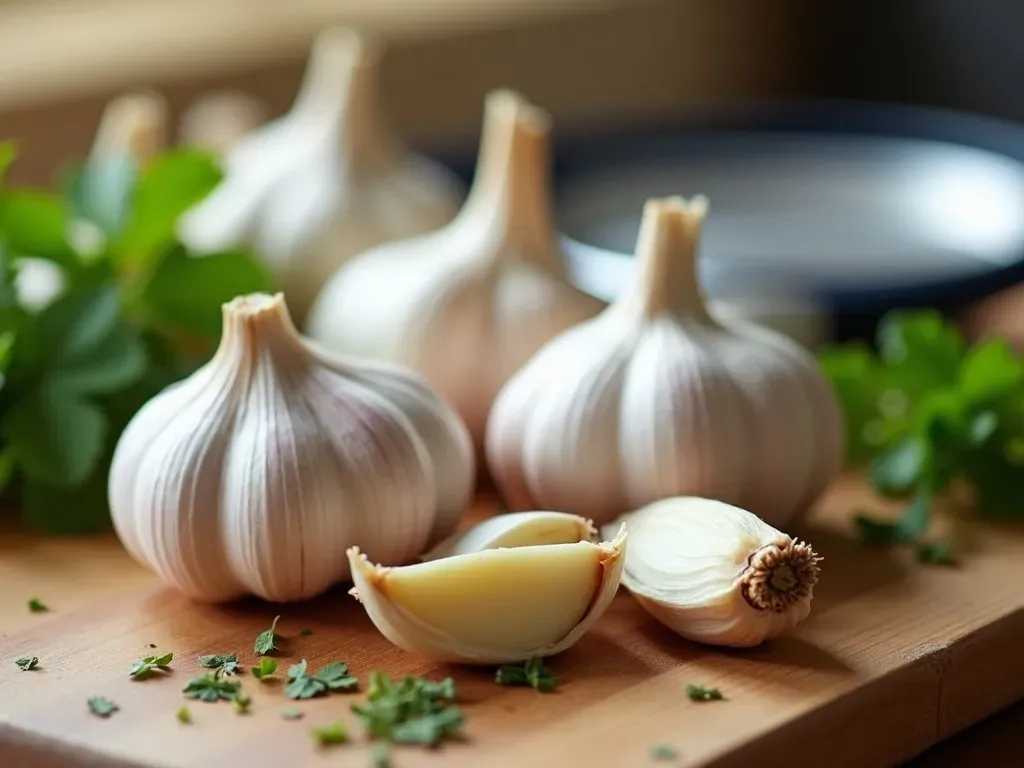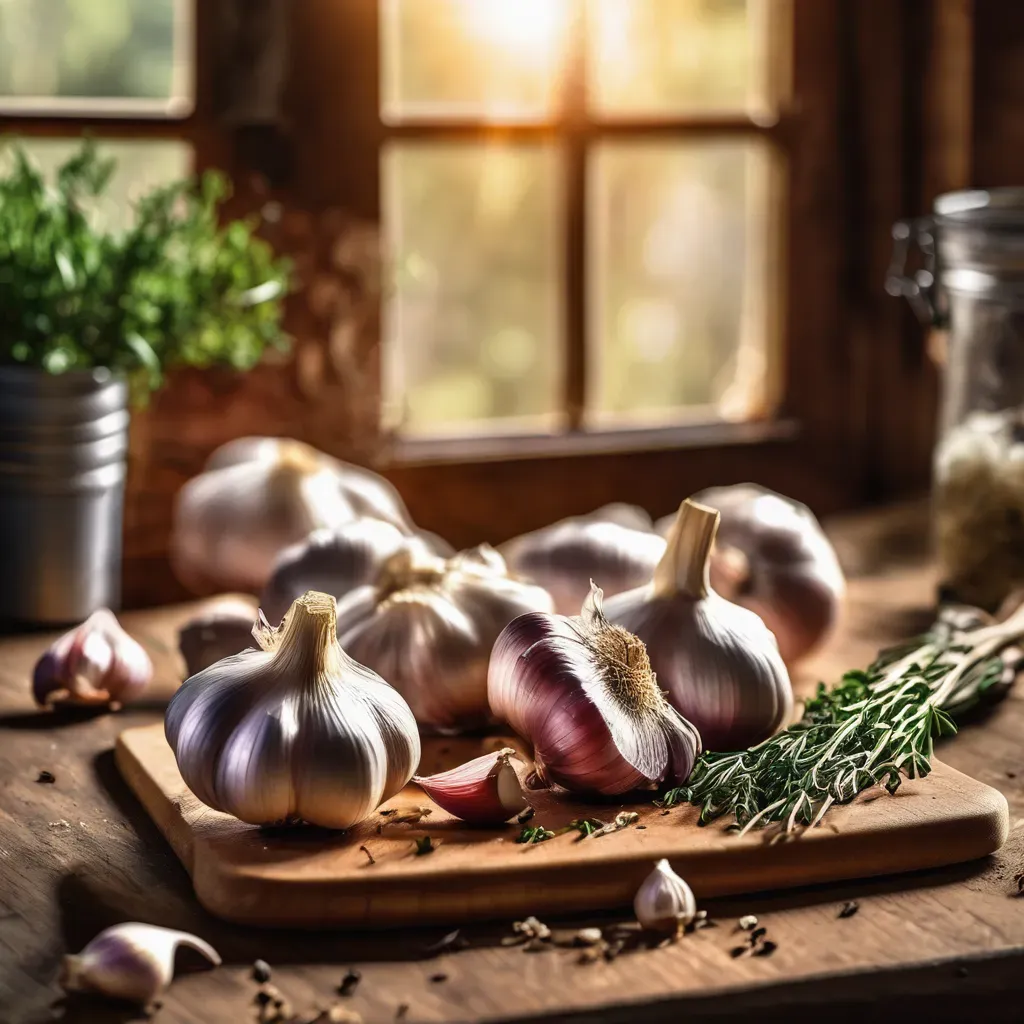According to various health studies, garlic has been praised as a natural remedy that may lower high blood pressure. Many people are curious about the efficacy of garlic in managing hypertension and whether this popular kitchen ingredient could significantly impact overall cardiovascular health.
Understanding Blood Pressure
Blood pressure is the force exerted by circulating blood against the walls of blood vessels. It’s measured in millimeters of mercury (mmHg) and is represented by two numbers: systolic (the pressure during heartbeats) and diastolic (the pressure between beats). High blood pressure, or hypertension, can lead to severe health complications, including heart disease, stroke, and kidney damage.
Typical Blood Pressure Ranges
| Category | Systolic (mmHg) | Diastolic (mmHg) |
|---|---|---|
| Normal | < 120 | < 80 |
| Elevated | 120-129 | < 80 |
| Hypertension Stage 1 | 130-139 | 80-89 |
| Hypertension Stage 2 | ≥ 140 | ≥ 90 |
How Garlic Affects Blood Pressure
Garlic, a member of the Allium family, contains several health-promoting compounds. The most notable compound is allicin, which is formed when garlic is crushed or chopped. Research indicates that allicin has potent antioxidant and anti-inflammatory properties, which may contribute to its potential blood pressure-lowering effects.
Clinical Evidence Supporting Garlic’s Effectiveness
-
Healthline indicates that garlic supplements can act similarly to standard anti-hypertensive medications in reducing blood pressure levels in hypertensive patients. You can read more here.
-
According to a meta-analysis published in the Journal of Hypertension, garlic was associated with reductions in blood pressure and cholesterol, highlighting its potential for cardiovascular health. For more detailed information, refer to this study.
-
The National Center for Biotechnology Information (NCBI) describes garlic supplements as showing effectiveness in reducing systolic and diastolic blood pressure in hypertensive patients, comparable to conventional medications. More can be found here.
Recommended Garlic Intake
Garlic can be consumed in various forms. The daily intake for hypertension management is generally accepted to be:
- Raw Garlic: 1-2 cloves per day
- Garlic Supplements: Dosage ranging from 600 to 1200 mg a day (consult a healthcare provider)
- Garlic Tea: Made by steeping crushed garlic in hot water, which can be consumed daily for added health benefits.

Is Garlic Tea Good for High Blood Pressure?
Garlic tea, made from simmering crushed garlic in water, offers a convenient and therapeutic method to enjoy garlic’s health benefits. The allicin content remains intact, providing potential blood-pressure-lowering effects. Regular consumption of garlic tea may result in noticeable improvements in blood pressure levels when combined with Other healthful lifestyle choices.
Garlic vs. Traditional Medications
Many individuals hesitate to rely solely on conventional medications due to potential side effects. While garlic may not replace prescribed medication, it can serve as a complementary approach. Here’s a comparative table of garlic consumption vs. regular antihypertensive medications:
| Aspect | Garlic Consumption | Antihypertensive Medications |
|---|---|---|
| Side Effects | Minimal | Various (dizziness, fatigue) |
| Cost | Low | Higher ongoing costs |
| Natural | Yes | No |
| Ease of Incorporation | Culinary use | Prescription required |
Lifestyle Changes for Managing Blood Pressure
Incorporating garlic into one’s diet should be part of a broader strategy for managing hypertension. This includes:
- Regular Exercise: Aim for at least 150 minutes of moderate aerobic activity per week.
- Healthy Diet: Emphasize fruits, vegetables, whole grains, and lean protein sources while reducing salt intake.
- Stress Management: Techniques such as yoga, meditation, and deep breathing can help reduce stress-related blood pressure spikes.
- Weight Management: Maintaining a healthy weight can significantly impact blood pressure levels.
FAQs About Garlic and Blood Pressure
Does garlic immediately lower blood pressure?
Garlic does not provide an instant effect on blood pressure levels. Its benefits become more noticeable with regular consumption over time, typically within weeks.
Is garlic more effective than medications?
Garlic may offer supportive benefits; however, it is not a substitute for prescribed antihypertensive medications. Always consult with a healthcare professional before making significant changes to your treatment plan.
Can I consume garlic if I’m on blood thinners?
Garlic has natural anticoagulant properties that may interact with blood-thinning medications. It is crucial to consult a healthcare provider regarding the safe consumption of garlic in such cases.

What are the best ways to incorporate garlic into my diet?
Garlic can be easily added to various dishes, such as pasta, soups, salads, and marinades. Roasting, sautéing, or using it raw in dressings are all excellent options.
Are there any risks associated with excessive garlic consumption?
While garlic is generally safe, excessive amounts can lead to gastrointestinal discomfort, including bloating and upset stomach. It’s recommended to keep intake to moderate levels.
In summary, the evidence suggests that garlic may indeed lower high blood pressure, making it a promising natural remedy for hypertension. Its unique properties, coupled with a healthy lifestyle, can pave the way for better heart health.
